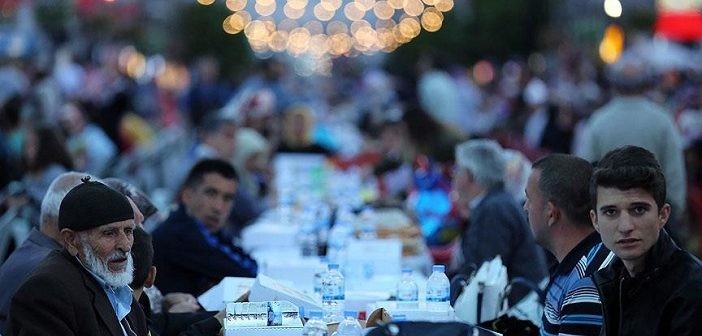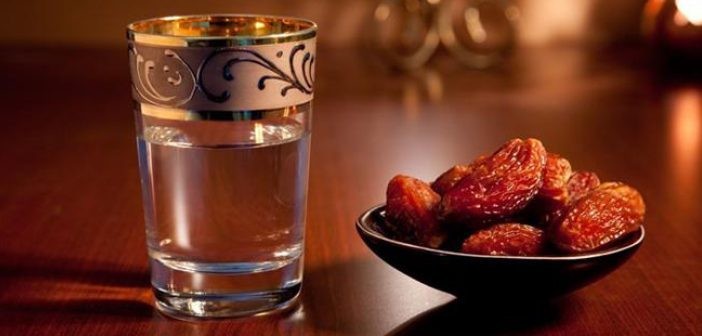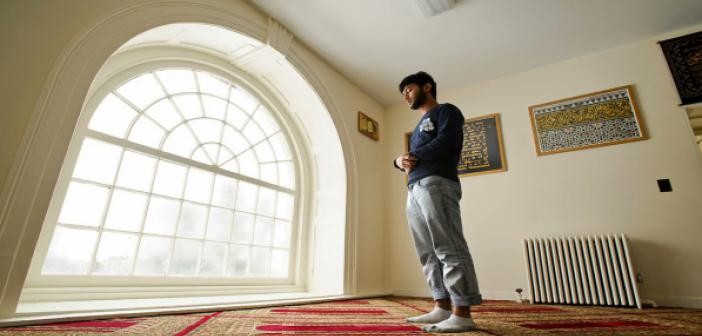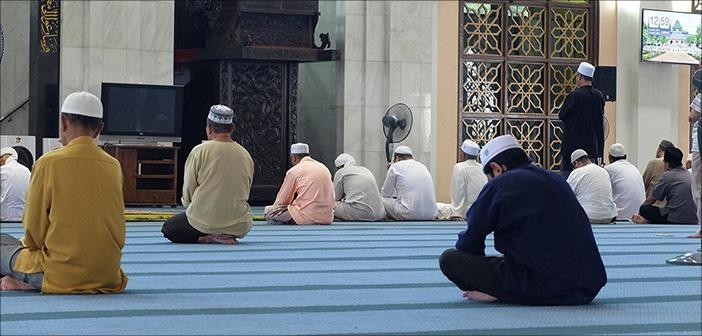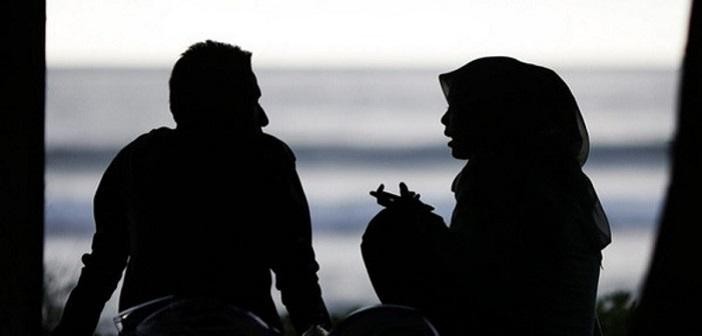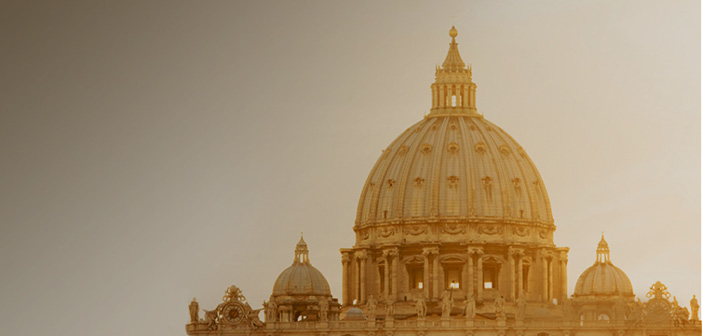
The Jews and the Battle of Banu Qaynuqa
What happened in the jews war? The battle jews and banu qaynuqa...
Forming a significant community in and around Medina, the Jews used to constantly tell their Arab neighbors of the coming of a prophet in the offing. Their genuine belief that the prophet would hail from among their community meant they did not shy away from eagerly spreading the news. Once the awaited prophet did in fact arrive, not from their own people, but from among the Arabs, their feelings of enthusiasm gave way to jealousy. Immediately changing their tune, their rejected his prophethood. Allah, glory unto Him, pronounces, in relation:
“And when We made a covenant with the children of Israel: You shall not serve any but Allah and (you shall do) good to (your) parents, and to the near of kin and to the orphans and the needy, and you shall speak to men good words and keep up prayer and pay the poor-rate. Then you turned back except a few of you and (now too) you turn aside.” (al-Baqara, 83)
“Evil is that for which they have sold their souls- that they should deny what Allah has revealed, out of envy that Allah should send down of His grace on whomsoever of His servants He pleases; so they have made themselves deserving of wrath upon wrath, and there is a disgraceful punishment for the unbelievers.” (al-Baqara, 90)
Another reason for Jewish bitterness was their love of the world, depicted in the Quran as follows:
“And you will most certainly find them the greediest of men for life (greedier) than even those who are idolaters; every one of them loves that he should be granted a life of a thousand years…” (al-Baqara, 96)
Moreover, their monopoly of commercial life gave the Jews an air of superiority, aggravated by their seeming power, which led them to believe:
“We are God’s children and His beloveds…” (al-Maida, 18)
When reminded of Divine Retribution for their mischief, they would reply, with confidence:
“Fire shall not touch us but for a few days…” (al-Baqara, 80)
But Allah, glory unto Him, declared otherwise:
“Nay! Whoever earns evil and his sins beset him on every side, these are the inmates of the fire; in it they shall abide.” (al-Baqara, 81)
Regardless of their pact with the Blessed Prophet -upon him blessings and peace- , the Jews were fostering inveterate feelings of hostility against him, which lead them to reignite old rivalries between clans and fan the flames of mischief. Allah, glory unto Him, exposed them to His Messenger and the Believers:
“O you who believe! Take not for intimates others than your own folk, who would spare no pains to ruin you; they love to hamper you. Hatred is revealed by (the utterance of) their mouths, but that which their breasts hide is greater. We have made plain for you the revelations if you will understand. Lo! You are those who love them though they love you not, and ye believe in all the Scripture. When they fall in with you they say: We believe; but when they go apart they bite their finger-tips at you, for rage. Say: Perish in your rage! Lo! Allah is Aware of what is hidden in (your) breasts. If a lucky chance befalls you, it is evil unto them, and if disaster strikes you they rejoice thereat. But if ye persevere and keep from evil their guile will never harm you. Lo! Allah is surrounding what they do.” (Al-i Imran, 118-120)
The Jews, who, as declared by the ayah, were nursing a covert yet irrepressible grudge against the Believers, were visibly discomfited following the Muslim victory at Badr. The Jews of Banu Qaynuqa, in particular, decided take their feelings of discomfort a step further and take on the Believers in battle. This was a prelude to their violation of the pact they had made with the Prophet of Allah -upon him blessings and peace-.
The Jews, aided by their close ally in Abdullah ibn Ubayy, the chief hypocrite, had virtually turned the Medinan Market into a witch’s cauldron for devising plots against the Believers. These plots had threatening consequences for Muslims; they even included a plan of assassinating the Blessed Prophet -upon him blessings and peace-.
By now, the Jews were recognizing no limits in their mischief and their impudence reached an extreme. One day, a Jew assaulted a Muslim woman doing trade in their market, throwing vile insults at her. Her scream for help did not fall on deaf ears, as another Muslim, who happened to be passing by at the time and had witnessed the whole saga, intervened, and charged at the Jew to fend him off. After a brief but violent scuffle, the Jew wound up dead, upon which other Jews around ambushed the Muslim, martyring him. It was a chaotic scene. This meant that the Jews had violated their pact with the Believers. So the Blessed Prophet -upon him blessings and peace- gathered their leaders immediately and addressed them:
“Jews; fear Allah! Fear Him lest you become overwhelmed by the doom that overwhelmed Quraysh! After all, you know very well that I am a true prophet…it is written in your Scriptures and known through the promise Allah made you!”
The Noble Messenger -upon him blessings and peace- thus implied that the Jews would be bound to pay the penalty of their transgression, but at the same time, he little wanted the pact broken. He thus offered a renewal of the pact. Yet, the Jewish response oozed with arrogance:
“Do you think we are group like the Quraysh, Muhammad, who know so little of warfare? Once you draw your sword on us, you will know what warfare really means!”
Allah, glory unto Him, thereupon revealed the following:
“Say to those who disbelieve: You shall be vanquished, and driven together to hell; and evil is the resting-place. Indeed there was a sign for you in the two hosts (which) met together in encounter.” (Al’i Imran, 12-13)[1]
It was none other than the Jews, who, in the past, had remonstrated against Musa -upon him peace-, exclaiming:
“So go; you and your Lord and fight! We will sit here.” (al-Maida, 24) Having previously refused a battle sanctioned by the Almighty, which was sure to reap them unimaginable rewards, they had now assumed a converse position, hiding behind a false bravado to take up arms in a battle that was clearly against their benefit.
Having declared war on the Muslims, the Jews had effectively violated their pact. They had now become open with their malicious intentions. Assigning Ali -Allah be well-pleased with him- as the flagbearer, the Blessed Prophet -upon him blessings and peace- therefore marched on the Jews of Banu Qaynuqa, who in turn, retreated into their castle. In spite of having made numerous plots with the hypocrites to repel the Believers, the Jews could not even shoot an arrow, let alone take a step out of their castle. Together with having laid an unbreakable siege on their castle, the Prophet of Allah -upon him blessings and peace- had at the same time taken all the safety measures possible in preventing a possible hypocrite uprising from behind them.
It was the chief hypocrite Abdullah ibn Ubayy who had advised them to withdraw into their castle, assuring the Jews he would run to their aid. But he never did. Fear held him back from keeping his word.
The siege lasted fifteen days. By now, the fear already running rampant in Jewish hearts had become unbearable. Laying salt to their wound was that the aid they had been anticipating from the hypocrites never came. No other option now remained other than to surrender. So they surrendered, prepared for whatever verdict the Blessed Prophet -upon him blessings and peace- would pass on them.
Banu Qaynuqa had a pact of allegiance with the Khazraj before the Hegira. So Abdullah bin Ubay, the Khazraj leader now turned hypocrite, pleaded for their pardon; for according to custom, they had to be killed.
Consequent upon a series of unrelenting pleas for their pardon, the Blessed Prophet -upon him blessings and peace- did not kill them but instead exiled them towards Syria. The Jews of Banu Qaynuqa, on the way, stopped off at Wadi’il-Qura, where they received some support from local Jews. Though they did proceed forth, the lives of the Jews of Banu Qaynuqa were similarly short-lived there as well.[2]
[1] Ibn Hisham, II, 422-423; Waqidi, I, 181-182; Ibn Saad, II, 30.
[2] See, Abu Dawud, Kharaj, 21-22/3001.
Source: Osman Nuri Topbaş, The Prophet Muhammed Mustafa the Elect II, Erkam Publications
Encouraging Communal Salat
The Return from Badr





